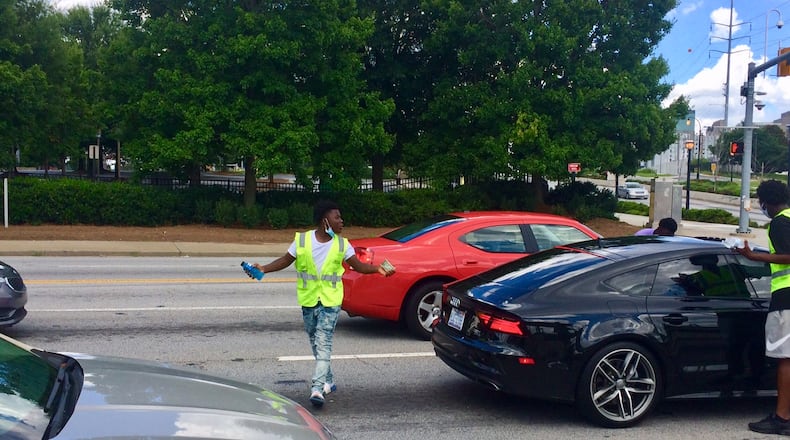Youngsters selling bottled water on interstate ramps would be among the intended pupils for a new entrepreneurship program being considered by DeKalb County officials.
The discussion about kids trying to sell water bottles to motorists reached a fever pitch over the summer in the city of Atlanta, where some encounters turned aggressive or violent. And while neighboring DeKalb has seemingly had little of that, the county’s public safety officials have reported significant numbers of young salesmen on ramps along I-20 and I-285.
Police leaders say they’ve already had a fair amount of luck steering kids away by being more engaging and less punitive, warning them about the dangers of being so close to the highway and, when warranted, contacting their parents. But County Commissioner Mereda Davis Johnson wanted to tackle the issue even further and recently asked public safety and other departments like the Office of Youth Services and WorkSource DeKalb to come up with a plan to both keep kids off the interstate and take advantage of their entrepreneurial spirit.
They unveiled their proposal during a Tuesday afternoon meeting.
The general idea is to create a (virtual-for-now) entrepreneurship training program open to youths 14 to 24 years old. Participants would earn a stipend during the six-week training period and, if they’re still in school, could be eligible for additional year-round programs.
The program would include motivational speakers, mentoring, in-depth classes about how to start a business and other work experience. It could also offer connections to more general support for things like food insecurity and housing.
The goal is to educate and, in the case of those selling water bottles, to provide safer methods for entrepreneurship, said WorkSource DeKalb’s Desjane Venable.
The stipend and potential for other financial support are particularly important, officials said, because many of the youths are doing things like selling water to make money and help their families. The potential stipend amount has yet to be determined, but participants in a similar “youth career academy” this summer earned $9 an hour.
Law enforcement would refer youths they encounter and other participants would likely be referred from other social service agencies. All told, the program could cost around $200,000 to get up and running and offer classes to an initial group of 30 or so pupils.
The proposal gained approval from a committee of the DeKalb Board of Commissioners and could be considered by the full board next week.
“I think it’s imperative that we find solutions on this before someone gets seriously injured or killed,” Davis Johnson said.
About the Author
The Latest
Featured



